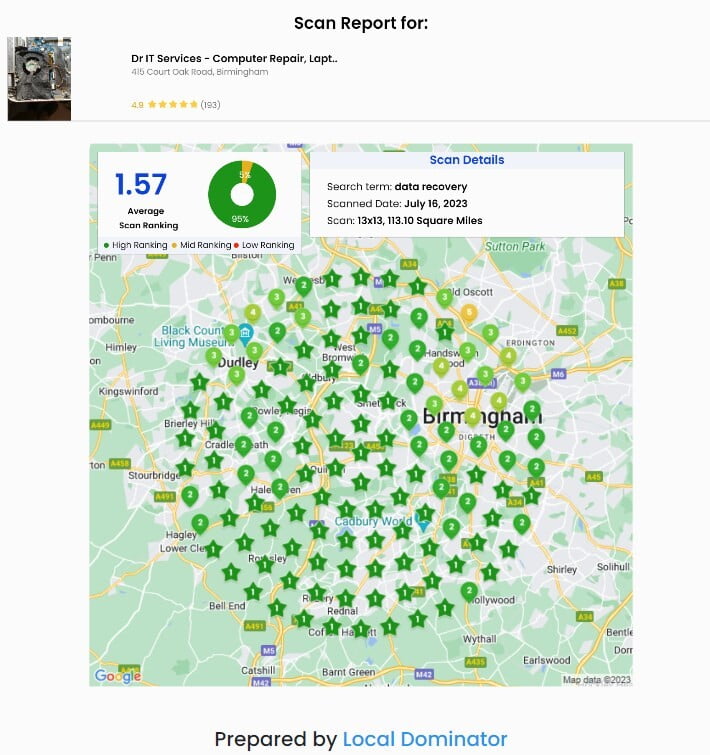
Why Small Businesses in Birmingham Need Online Visibility
2 July 2024
7 Proven Steps to Authenticated Online Visibility
3 July 2024Solid financial management is the cornerstone of small business triumph. Approximately 30% of small businesses stumble due to financial inadequacies. It's vital to plan budgets, manage cash flow, and scrutinize profit margins for long-term sustainability. Leveraging online tools for invoicing and reporting can enhance decision-making capabilities. Mismanaging cash flow and mishandling debts can severely impact day-to-day operations. Consistently tracking expenses and prioritizing debt repayment are essential for maintaining financial stability. Using budgeting tools and cash flow analysis software can aid in developing detailed financial strategies. Monitoring profits and tracking expenses are crucial for making well-informed decisions. Implementing efficient fund allocation and closely monitoring cash flow are key factors for ensuring the enduring health of your business.
Key Takeaways
Contents
- Managing your finances effectively is key to the success of your small business. It's like having a compass in a stormy sea, guiding you to safe harbors.
- Keeping a close eye on your cash flow and creating a budget plan are not just suggestions; they are essential for your business's survival and growth.
- Debt mismanagement can sink your business faster than you can say "Ahoy!" Avoiding this financial iceberg is crucial for sailing smoothly towards success.
- By meticulously tracking your expenses and income, you're essentially putting on your financial detective hat, ensuring your business stays afloat in the unpredictable waters of entrepreneurship.
- Don't navigate the world of business blindfolded; use tools for financial tracking to make informed decisions like a seasoned captain steering a ship through rough seas.
Importance of Financial Management
Financial management is like the backbone of small businesses, contributing significantly to their success and longevity. Shockingly, about 30% of small businesses fail due to a lack of expertise in handling finances. Budget planning and cash flow management are like the bread and butter of financial management, ensuring that the business stays afloat and meets its financial commitments. Keeping an eye on profit margins and cutting down on unnecessary expenses are crucial for maintaining a healthy financial status. It's all about increasing revenue while keeping costs in check to boost profitability. Embracing smart financial management practices, such as using online invoicing tools and generating accurate financial reports, can empower small businesses to make informed decisions, strengthen their financial foundation, and fuel growth.
Common Financial Pitfalls
When it comes to running a small business, steering clear of financial pitfalls is crucial for long-term success. Inexperienced management and poor money decisions can throw a spanner in the works, making it tough to keep the business afloat. One common stumbling block is mishandling cash flow, which is like the lifeblood of a business. Without a healthy cash flow, meeting financial obligations and keeping operations running smoothly can be like trying to paddle upstream without a paddle.
On the other hand, effective debt management is another key player in the financial game. If debts are not managed well, they can become like heavy weights dragging the business down, preventing growth and flexibility. It's important to keep debt in check and negotiate favourable terms to avoid getting in over your head.
To stay on top of things, tracking expenses and income is a smart move to manage cash flow effectively. This helps in understanding where the money is coming from and where it's going, giving you a clear picture to make informed decisions. But let's not forget about debt – monitoring and repaying debts regularly is like tending to a garden, ensuring that the financial landscape stays healthy and thriving.
Tools for Financial Tracking
Keeping a close eye on your finances is crucial for the success of your small business. One essential element of this is using tools to monitor and manage your financial transactions efficiently. Budget planning tools help you create detailed financial plans, while cash flow analysis software ensures a steady flow of funds. Tracking your expenses with dedicated applications allows you to keep a meticulous record of where your money is going. Additionally, profit monitoring tools help you track your income and assess your overall profitability. By making the most of these tools, small business owners can make informed decisions, pinpoint areas for improvement, and plan effectively for future growth.
Strategies for Financial Health
Securing the financial stability and growth of your small business requires strategic practices that promote a healthy financial outlook. Maximising profits and assessing risks are crucial elements for ensuring long-term success. By using online invoicing software, you can streamline processes and monitor financial performance regularly. Keeping precise records of expenses and revenue enables better cost control and identifies growth opportunities. Implementing a budgeting strategy helps in effective fund allocation and prevents overspending. It's essential to monitor cash flow closely to maintain liquidity for daily operations and unexpected expenses. These practices collectively contribute to financial health, laying the groundwork for sustainable growth.
Long-Term Business Sustainability
Building a robust foundation for long-term business sustainability is vital for small enterprises looking to thrive in today's ever-evolving market. To ensure lasting success and reduce our impact on the environment, businesses should:
- Optimize Resource Management: Cut down on waste by using resources efficiently, which not only saves money but also lessens our environmental footprint.
- Transition to Renewable Energy: Making the switch to renewable energy sources is a win-win—it's eco-friendly and cost-effective in the long run.
- Prioritize Ethical Supply Chains: Work with suppliers who follow sustainable practices to uphold social and environmental responsibility across the entire supply chain.
